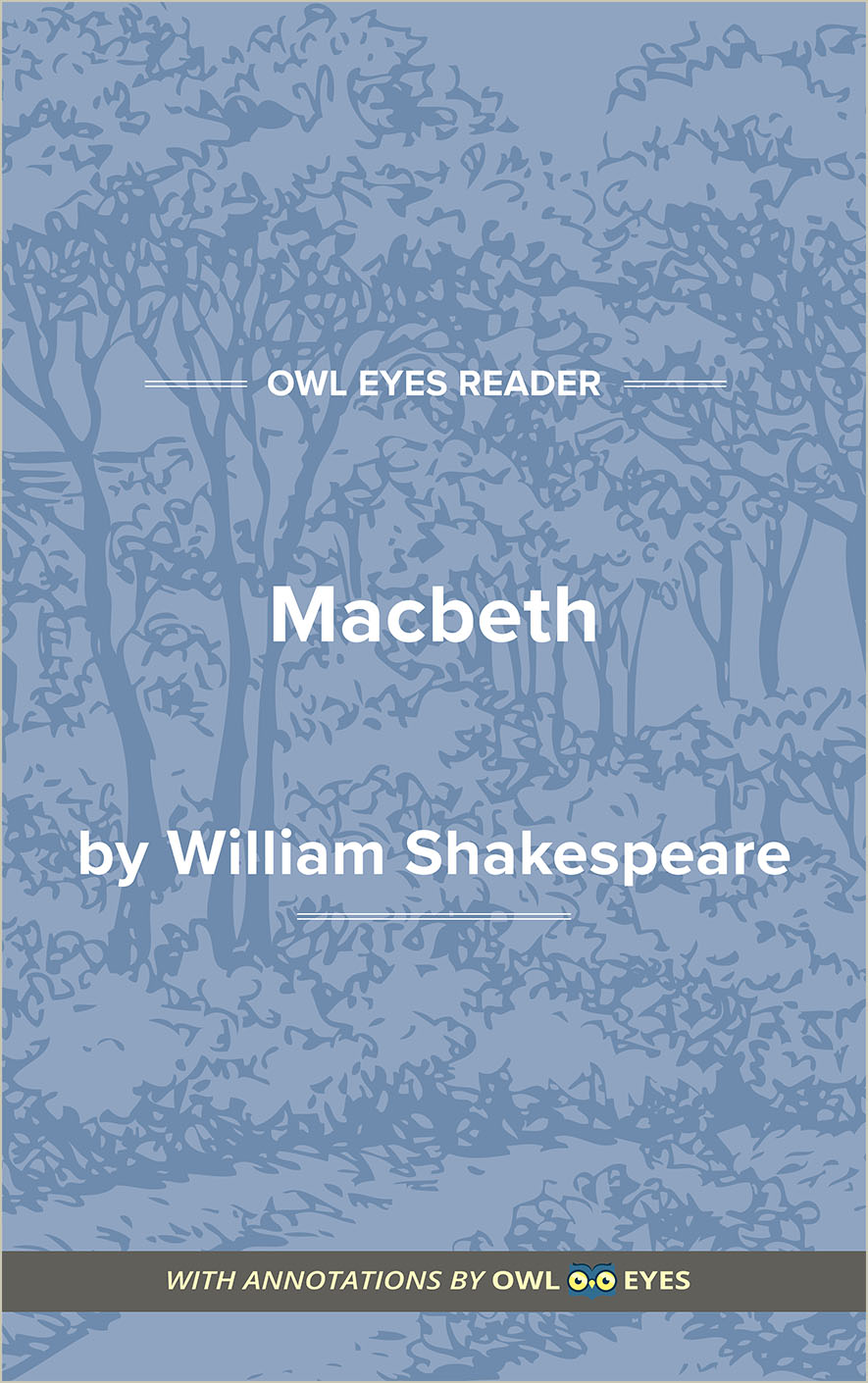Analysis Pages
Historical Context in Macbeth
Macbeth as Tribute to the King: Shakespeare wrote a number of historical plays about royal characters. Macbeth was largely written in tribute to King James I. Prior to serving as King of England, James I had served as King of Scotland. He took the throne in 1603 when Queen Elizabeth I died without an heir. Though James I was widely accepted as the new king, he was not as charismatic or endearing as the beloved queen. As the son of the Catholic Mary Queen of Scots, a woman who had been beheaded when she tried to overthrow Elizabeth’s Protestant throne, James suffered more political insecurity than his predecessor.
In Macbeth, the witches predict that Banquo will have a long line of successors to the throne was included to flatter the king. The Stewart kings, such as James I, claimed to be descendents of Banquo, even though it is inconclusive whether or not Banquo was a real person.
In the Holinshed Chronicles, from which Shakespeare got his source material, Banquo was a ruthless collaborator who helped Macbeth kill Duncan and take the throne. However, as a tribute to King James I, Shakespeare changed the character to be wise, noble, and morally righteous. This move would have endeared Shakespeare with his new king.
The Real Macbeth: Macbeth’s character refers to the 11th King of Scotland, named Mac Bethad mac Findláich. He ruled Scotland from 1040 to 1057 after murdering King Duncan. However, the real Duncan was a weak man about the same age as Macbeth. He was not popular or widely respected like the king in the play. Murdering for power was also not uncommon in Scotland in those times. Of the fourteen kings who ruled over Scotland between 943 and 1097, ten were killed in attempts to seize power. Shakespeare’s themes and characterizations within this play can then be read as a reflection of his own time and political instabilities rather than a historically accurate account of Scottish history.
Historical Context Examples in Macbeth:
Act I - Scene I
🔒"Graymalkin..." See in text (Act I - Scene I)
"When shall we three meet again..." See in text (Act I - Scene I)
"Enter three Witches..." See in text (Act I - Scene I)
Act I - Scene II
🔒"Thane..." See in text (Act I - Scene II)
Act I - Scene IV
🔒"That very frankly he confess'd his treasons, Implored your highness’ pardon, and set forth A deep repentance. Nothing in his life Became him like the leaving it;..." See in text (Act I - Scene IV)
Act I - Scene V
🔒"LADY MACBETH..." See in text (Act I - Scene V)
Act I - Scene VII
🔒"And pity, like a naked new-born babe..." See in text (Act I - Scene VII)
"And, to be more than what you were, you would Be so much more the man..." See in text (Act I - Scene VII)
Act II - Scene I
🔒"heat-oppressed brain..." See in text (Act II - Scene I)
"Tarquin's ravishing strides..." See in text (Act II - Scene I)
"Torch*..." See in text (Act II - Scene I)
"How goes the night, boy..." See in text (Act II - Scene I)
Act II - Scene II
🔒"hangman's hands..." See in text (Act II - Scene II)
"the owl that shriek'd, the fatal bellman..." See in text (Act II - Scene II)
Act II - Scene III
🔒"To countenance this horror!..." See in text (Act II - Scene III)
"here's an equivocator..." See in text (Act II - Scene III)
Act III - Scene I
🔒"Mark Antony's was by Caesar..." See in text (Act III - Scene I)
"Sennet sounded...." See in text (Act III - Scene I)
Act III - Scene II
🔒"She'll close and be herself..." See in text (Act III - Scene II)
Act III - Scene III
🔒"THIRD MURDERER:..." See in text (Act III - Scene III)
"Enter three Murderers..." See in text (Act III - Scene III)
Act III - Scene V
🔒"Enter the three Witches, meeting Hecate...." See in text (Act III - Scene V)
Act III - Scene VI
🔒"Northumberland and warlike Siward..." See in text (Act III - Scene VI)
Act IV - Scene I
🔒"FIRST WITCH:..." See in text (Act IV - Scene I)
"eight Kings..." See in text (Act IV - Scene I)
"the eighth appears, who bears a glass..." See in text (Act IV - Scene I)
"Finger of birth-strangled babe..." See in text (Act IV - Scene I)
"What, will the line stretch out to the crack of doom?..." See in text (Act IV - Scene I)
"cauldron..." See in text (Act IV - Scene I)
"Enter Hecate, and the other three Witches...." See in text (Act IV - Scene I)
Act IV - Scene III
🔒"where violent sorrow seems A modern ecstasy...." See in text (Act IV - Scene III)
"My countryman..." See in text (Act IV - Scene III)
"the evil:..." See in text (Act IV - Scene III)
"At one fell swoop?..." See in text (Act IV - Scene III)
Act V - Scene I
🔒"into the field..." See in text (Act V - Scene I)
Act V - Scene II
🔒"uncle Siward,..." See in text (Act V - Scene II)
Act V - Scene III
🔒"Bring it after me...." See in text (Act V - Scene III)
Act V - Scene VII
🔒"They have tied me to a stake; I cannot fly, But bear-like I must fight the course...." See in text (Act V - Scene VII)

